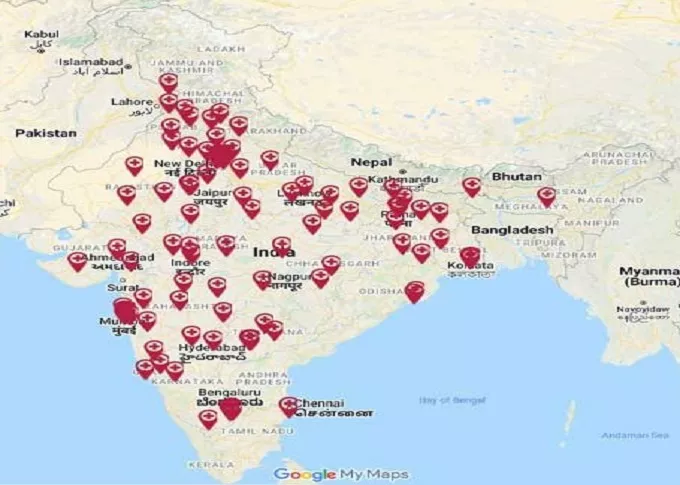What are the different causes of Female Infertility?
Infertility only affects women is among the most pervasive myths. A third of all occurrences of infertility are thought to be caused by female infertility, with the remaining two thirds include male infertility and unexplained infertility. Let us understand some of the common female infertility causes.
Almost every woman wishes to have her own child one day. However, it might be challenging for some women to fulfil this desire. If you can't get pregnant, a hopeful and happy period may transform into a stressful one. If you are under the age of 35 and have unsuccessfully tried for a year to conceive, if you are above 35 and have attempted for more than six months without success, if you have multiple miscarriages, or if you have tried other fertility treatments and failed, you may be experiencing infertility.
In many instances, it is treatable and a common problem. If your menstrual cycles are irregular or you have a history of gynaecological conditions, including endometriosis, pelvic surgery, tubal pregnancies, or infections, you should get care sooner rather than later. Many phases are involved in getting pregnant, and your body may have issues with one or more of them, including egg production, fertilisation, and implantation.
What are the reasons for Female Infertility?
Infertility in women can have several reasons. The major categories they fall under are ovulation abnormalities and structural flaws, which may include uterine and tubal causes. Let's first examine some common female infertility causes.
1. Ovulation Problems
According to data, 40 percent of instances of female infertility are due to ovarian failure, a key issue for infertility in women. Numerous illnesses, such as thyroid disease and other endocrine disorders, hormone imbalance, ageing, and specific gynaecological issues, can all contribute to this. However, primary ovarian insufficiency (POI) is the most prevalent of these ailments. This is sometimes called polycystic ovary syndrome (PCOS) and premature ovarian failure. In both, ovulation is frequently erratic, or ovaries stop producing eggs for extended periods.
2. Polycystic Ovary Syndrome (PCOS)
There needs to be more discussion of PCOS because it is a huge contributor to female infertility. The ovary's ability to generate and release eggs is hampered due to hormonal imbalance and the formation of ovarian cysts. Numerous people also exhibit additional illness symptoms, such as excessive hair growth, particularly on the cheeks, inner thighs, and lower abdomen. Others struggle with having too much body fat. Other disorders are linked to irregular ovulation, and the expert will carry out specific hormonal tests or blood tests to identify a potential reason.
Approximately 10 percent of women of reproductive age are said to be afflicted by PCOS, according to the PCOS Awareness Association. Yet, fewer than half have their illness identified and are aware of it. Your doctor may utilise oral drugs with lesser risks to induce ovulation in treating PCOS. If treatment with oral ovulation inducers is unsuccessful, more aggressive treatment using injectable ovulation inducers may be required. In vitro fertilization (IVF) and other assisted reproduction techniques are sometimes required.
3. Endometriosis
Another major factor in female infertility is endometriosis, a disease in which uterine tissue develops outside of the lining of the uterus. The tissue can develop on the ovaries, behind the uterus and fallopian tubes. This scar tissue can potentially harm or restrict fallopian tubes and hinder implantation. Endometriosis may be more common in women with inherited characteristics, and current research suggests that the immune system may be implicated. Endometriosis often appears in women in their 30s or 40s. However, women of reproductive age can acquire this disorder at any time.
Infertile patients should always be tested for endometriosis, especially if the condition runs in the family or other symptoms are present. The most typical signs and symptoms of endometriosis include premenstrual pelvic discomfort and unbearable pain during periods and sexual activity.
4. Uterine Fibroids
Uterine fibroids are growths on the inside of the uterus, and while the exact reason is unknown, up to 10 percent of infertile women are known to have them. Nearly 1 in 4 women will get fibroids at some point, making them quite prevalent. Uterine fibroids may obstruct the fallopian tubes and prevent implantation, depending on their size and location. Under the influence of the oestrogen hormone, fibroids can grow to various proportions and are mostly benign. However, when fibroids are big, they can cause discomfort, pain during sex, hormones problems, cervical mucus issues, heaviness, urinary problems, and irregular bleeding. Because the body produces less oestrogen after menopause, fibroids decrease.
5. Age
Reviewing fertility problems would be impossible without considering how factors related to ageing affect fertility and fertilized egg quality. Due to the "Age Factor", infertility has significantly increased due to many women deferring childbirth into their late 30s and 40s. Numerous studies, including IVF success rates, show a sharp decline in pregnancy rates when women approach their late thirties. After trying for one cycle, the likelihood of a woman becoming pregnant on her own at age 45 is less than 2–3 percent. However, males produce fresh sperm in their testicles every 70 to 80 days. So as they age, their ability to conceive has little impact due to their stable sperm count.
The miscarriage rate rises in tandem with this, from 10 percent at age 20 to 40 percent at age 45. This is caused by the fact that with time, the quality of eggs declines, which results in a decline in pregnancy rates.
6. Genetic Factors
Congenital uterine anomalies, which can range in severity, are conditions that some women have from birth. Sometimes the uterus is completely non-existent or quite tiny. In some instances, the uterus is split in half or a thick membrane known as a septum is located in the centre of the cavity. Infertility or miscarriages may be caused by such defects, which may prevent the zygote from implanting normally. Along with laparoscopic surgical investigation, the HSG or hysterosalpingogram x-ray test is typically used to make the diagnosis. Simple outpatient fixes are possible for milder situations, including a tiny septum.
Is it possible to stop Female Infertility?
Unfortunately, the great majority of infertility reasons cannot be avoided. However, keeping up a healthy lifestyle can make getting pregnant more likely. Regular exercise, appropriate sleep, avoiding stress, abstaining from drugs, alcohol, and cigarettes, and limiting your exposure to pollutants in the environment are all good ways to stay healthy. It's crucial to maintain a healthy weight since being excessively overweight or underweight might lower your chance of getting pregnant.
Get in touch with Indira IVF if you're having a hard time becoming pregnant. It might be intimidating to take this initial step, but we will walk you through the process of assisted reproductive technologies step by step. We are available to assist you in choosing the best treatment plan. To book a Free Consultation with our IVF Doctors, call 18003092323.
Pregnancy Calculator Tools for Confident and Stress-Free Pregnancy Planning
Get quick understanding of your fertility cycle and accordingly make a schedule to track it
Get a free consultation!















